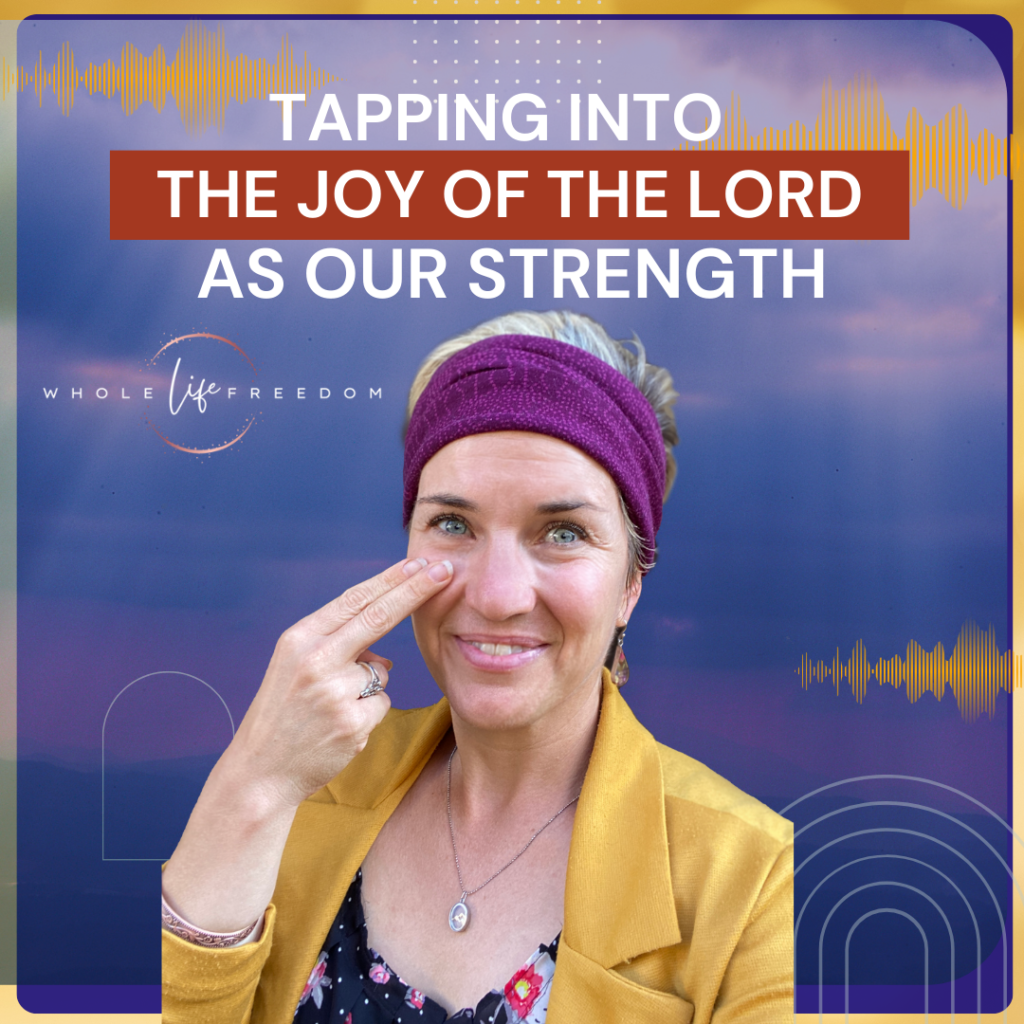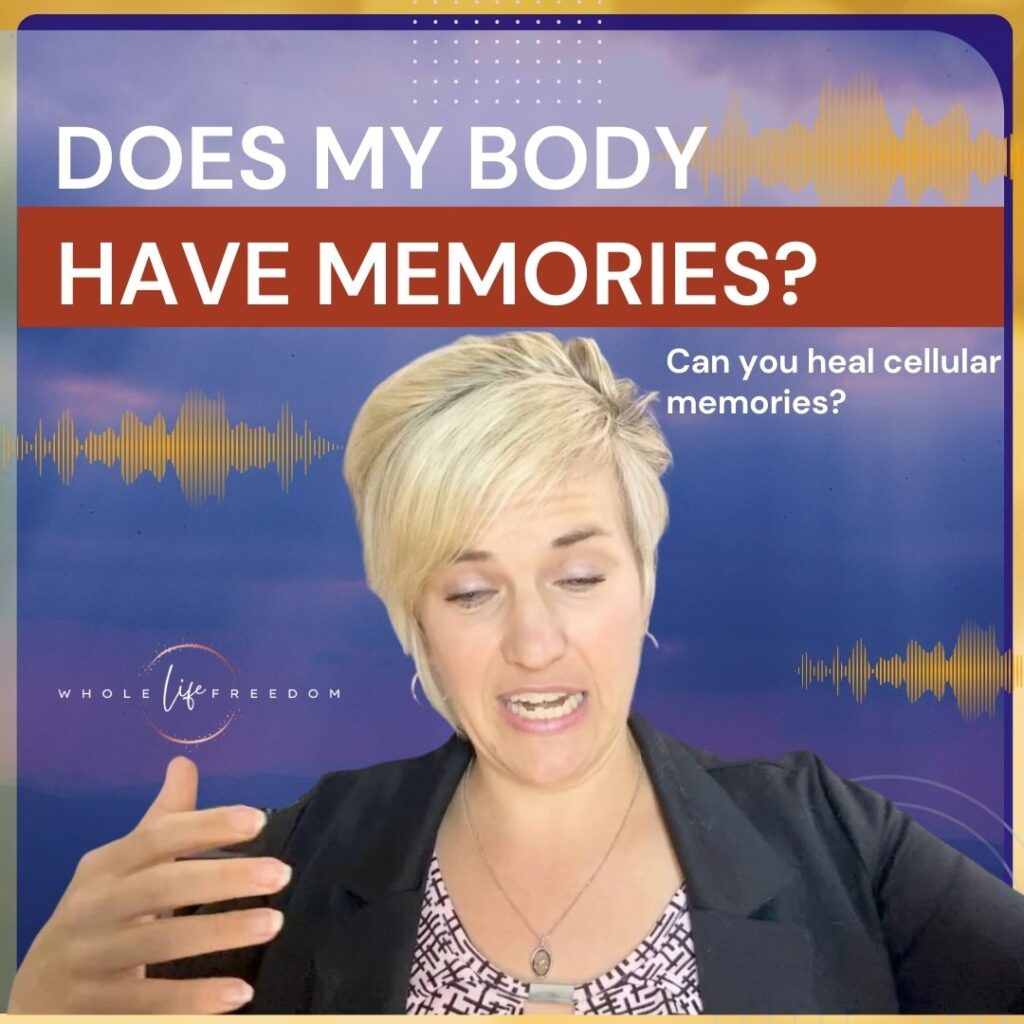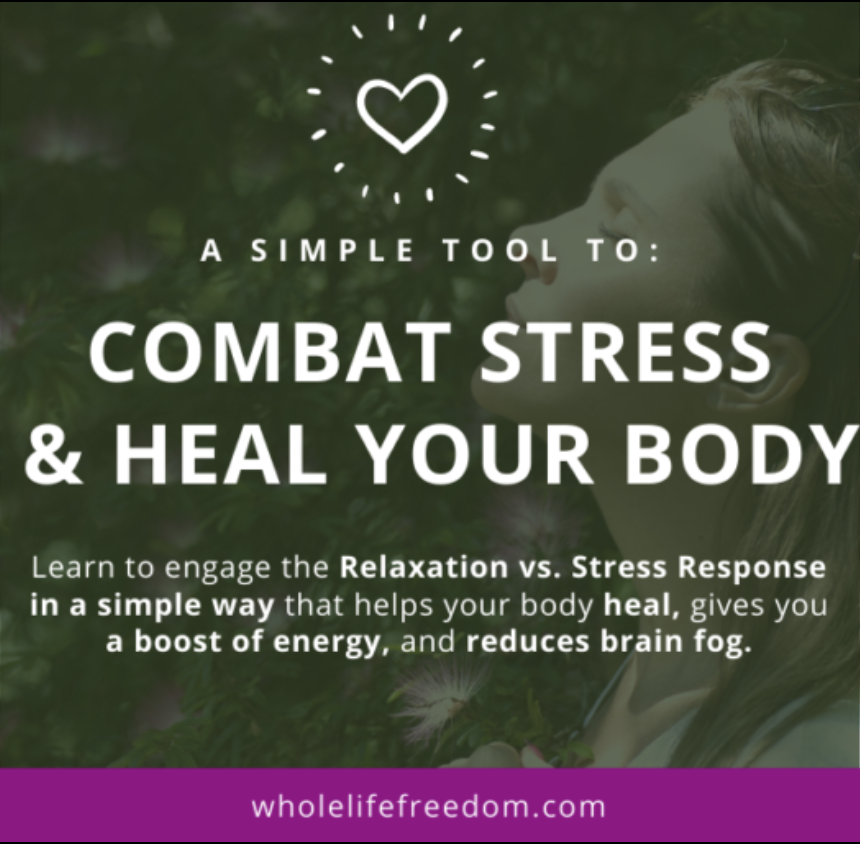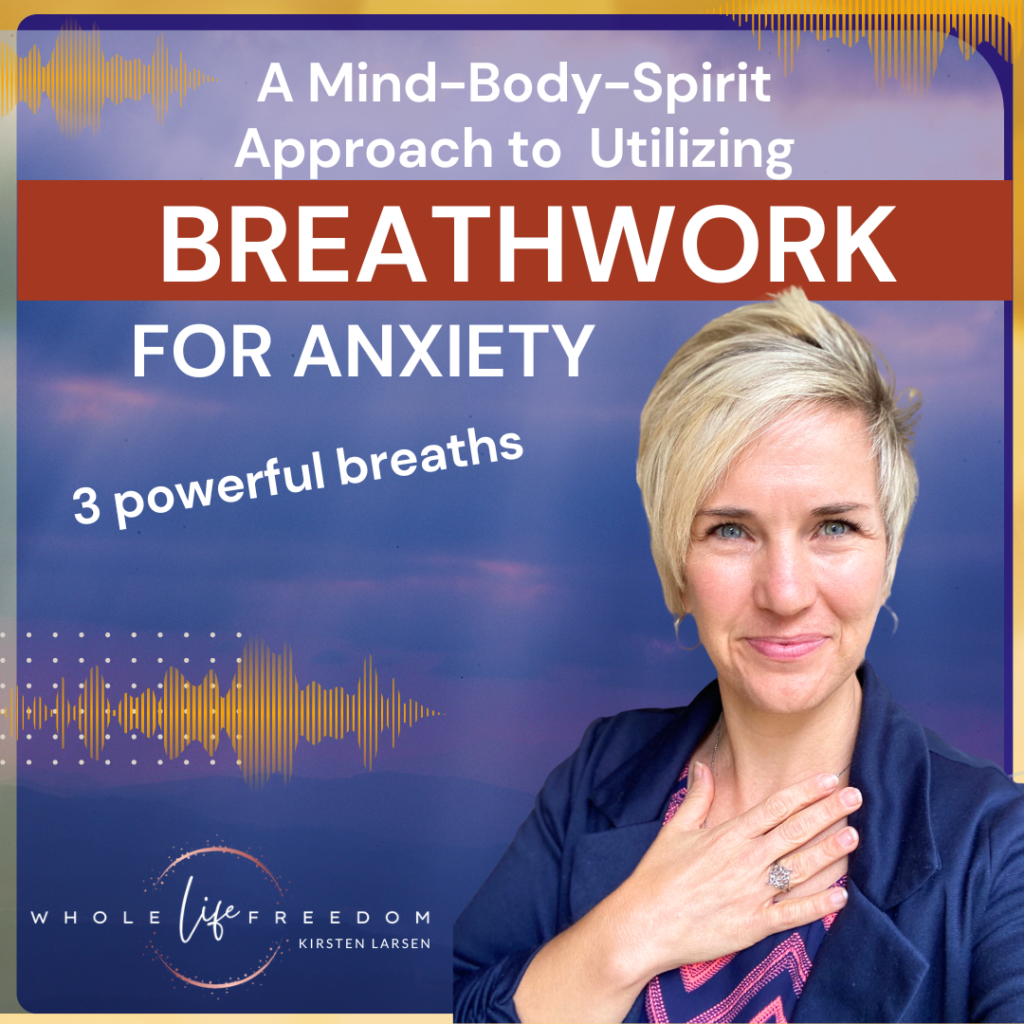
In part 1 we talked about how our eating can amplify or transform our emotions. If you haven’t yet watched/read that one, you can head on over here.
We learned that if we eat certain foods (sugars, salts, processed, saturated fats), or neglect certain foods (nutrients) our emotions can either be amplified or stunted.
Likewise, if we don’t eat certain foods, we don’t have the resources in our bodies to create the happy, joyful, and peaceful emotions we need.
And today is part 2 of 3 in the emotional eating series.
- Part 1: How food can directly affect our emotions.
- Part 2: How to slow down and address our emotions when it comes to food.
- Part 3: Lifestyle changes to help our emotions, reduce our desire for more food, etc.
In part, I shared about the “Catch 22 Circle” where you enter in to this cycle of eating poor foods because you need certain emotions, which cause a slowing down of your body creating those chemicals (because it’s coming from food instead).
SIMPLE STEPS YOU CAN TAKE BEFORE REACHING FOR FOOD:
-
Get a “Brain dump journal”
I like to suggest having a journal that you can truly pour your heart out into. It can be one you love the look of, or simple one you bought at the 99c store and will toss out when you fill it up.Mini practice: Head on out (or over to Amazon) and grab yourself a journal to write in. Take a minimum of 5 minutes to write out thoughts, emotions, or anything else that comes to mind. Let it all out. What would you say if you could say it all and know that no one will be reading it?
-
Get into sunlight & nature regularly
Vitamin D deficiency has been shown to have many health issues connected to it, but one of them is the way it can be linked to depression, anxiety, and lower cognitive function. It is extremely helpful to our mind, body, and emotions. If you can’t get 15-20 minutes of sunlight per day, then it’s a good idea to take a Vitamin D supplement. Sunlight and nature have added benefits of also helping us with all the benefits of fresh air, movement, and a new perspective.
Mini practice: Make a goal to get out and get in sunlight for 10-15 minutes a day for one week. Note how your emotions shift. Couple this with #6 next time you reach for food from an emotional low and you’ll notice a nice shift upwards. Extra bonus if you put your feet in the grass for a few minutes 🙂
-
Talk to a safe person
This can be a friend, a family member, a coach, or a counselor. But talking out feelings and emotions can be extremely helpful for getting the emotions outside of your head and body, as well as getting a fresh perspective. Sometimes having that simple moment of talking through something can bring relief to some painful emotions.
Mini practice: Write out a small list of 1-3 safe people you can go to in times of emotional challenges. Put that list somewhere you can easily access. Next time you notice anxiety, depression, or other emotions come in, shoot them a message. (Pro tip: it doesn’t even need to be serious. Sometimes the act of connecting can shift our mental state).
-
Take time to breathe
Breathwork will help slow down the cortisol levels in your body. It will help reduce anxiety, fatigue, and allow your body the process it needs to heal. For some simple breathing tips to relieve anxiety, check out my article here.
Mini practice: Start each morning with 5 minutes of quiet time, taking some deep breaths.
-
Pause and find stillness
Many times we miss out on what our bodies are saying when we don’t listen. We move through life at such a fast pace that we don’t know WHY we’re grabbing this food or that food.
Mini practice: Take one week to pause before you eat. Take a deep breath. Check-in with how you’re doing. Are you reaching for that food because you’re truly hungry or because of something else?
-
Move your body regularly
Exercise & regular movement has been studied for many years and has been known to increase dopamine and serotonin levels in the body, which then help our ability to think clearly and feel better. For some, exercise has even been shown to reduce depression and anxiety (1). At the very least, it will change your physical space, get your blood flowing, and shift your perspective for a moment.
Mini practice: When feeling low (or anytime really), get up and move your body. This is when we usually don’t feel like moving at all, but when we need to the most. Even better – make it a habit to move regularly each day in order to create a regular boost to your emotional state.
GOING DEEPER: LET’S UNDERSTAND THE CHEMICAL SIDE …
- We have 3 chemicals that majorly affect our moods: Dopamine, Serotonin, and Cortisol.
- Now, depression and anxiety, and emotions, in general, are very complex. Far more than this article here.
- (NOTE: I am not saying that this is all there is to it. This is simply a part that can help)
- Cortisol: When we face stress, struggles or threats to our well-being, our adrenals release cortisol, which is just meant to be our fight or flight chemical. When we engage with this fear, stress, or negativity, this cortisol is released and lingers in our body, it causes continual inflammation in our bodies.
- Dopamine: helps us feel pleasure and plays a major part in motivation and reward. It helps you feel alert and awake.
- When dopamine levels are low, we tend to feel unmotivated.
- We are in a constant state of trying to counteract the negativity in the world today.
- Negativity can come in many forms: What’s happening in the world OR through chemical foods that produce a false sense of joy.
- Thing is, if you keep eating foods that create unnatural dopamine within your body, your body will try and balance it out by reducing the dopamine it creates. Therefore it creates this “catch 22” circle. Our body then responds to this when we
- Serotonin: is a chemical in our brain that affects our mood relating to how you process your emotions. Low serotonin doesn’t cause depression, but it is a mood factor in which low levels are seen in people with depression, anxiety, and other mood disorders. Your gut actually contains 95% of your serotonin and plays a huge part in digestion! https://www.healthline.com/health/dopamine-vs-serotonin#depression
- Lastly we have inflammation: Inflammation is linked to depression, anxiety, brain fog, diabetes, fatigue, irritability, sadness, gut health, cancer, and many other issues.
An imbalance in any of these can have effects on your brain, gut, emotions, weight and sleep.
A few things that draw upon our dopamine levels:
- Sugar, Salt, and processed foods.
- Dairy.
- Fatty foods.
- Our phones.
- Excess Stress
- Lack of sleep
Stories of Depression Reversed Through Diet:
- https://www.forksoverknives.com/wellness/diet-depression-link-food-mental-health/#gs.7gu036
- https://www.forksoverknives.com/success-stories/how-going-plant-based-helped-me-overcome-depression/#gs.7gu02n
- https://www.forksoverknives.com/success-stories/conquered-depression-whole-food-diet/#gs.7gtzvm
- https://www.forksoverknives.com/success-stories/i-went-plant-based-and-left-life-threatening-depression-behind/#gs.7gtzul
- https://www.forksoverknives.com/success-stories/type-2-diabetes-addiction-depression-130-pounds-gone-in-three-years-with-a-plant-based-diet/#gs.7gu0dy
Research on diet:
- https://nutritionfacts.org/video/exercise-vs-drugs-for-depression/
- 18-Month Study published in the American Journal of Health Promotion tested the impact of nutrition on well-being and workplace productivity:
https://www.ncbi.nlm.nih.gov/pmc/articles/PMC3701293/ - M E Payne, S E Steck, R R George, D C Steffens. Fruit, vegetable, and antioxidant intakes are lower in older adults with depression. J Acad Nutr Diet. 2012 Dec;112(12):2022-7.
- https://www.healthline.com/health/dopamine-vs-serotonin
- https://www.forksoverknives.com/wellness/diet-depression-link-food-mental-health/#gs.7gu036
- https://nutritionfacts.org/video/antioxidants-and-depression/
- https://nutritionstudies.org/diet-to-fight-depression/
- Avena NM, Rada P, Hoebel BG. Sugar and fat bingeing have notable differences in addictive-like behavior. The Journal of nutrition 2009;139:623-8.
- Nousen EK, Franco JG, Sullivan EL. Unraveling the mechanisms responsible for the comorbidity between metabolic syndrome and mental health disorders. Neuroendocrinology 2013;98:254-66.
- Beezhold BL, Johnston CS. Restriction of meat, fish, and poultry in omnivores improves mood: a pilot randomized controlled trial. Nutr J 2012;11:9.
Chlorella and Detoxing:
Emotions:
- https://nutritionfacts.org/video/how-to-strengthen-the-mind-body-connection/
- https://www.ncbi.nlm.nih.gov/pmc/articles/PMC2908269/
- https://www.healthline.com/health/dopamine-vs-serotonin
- https://nutritionstudies.org/diet-to-fight-depression/
[acf field=”author_kirsten”]
[acf field=”signup”]
[acf field=”subscribe”]
Kirsten Larsen is a wholeness coach, helping people experience freedom and breakthrough in body, soul, and spirit.





